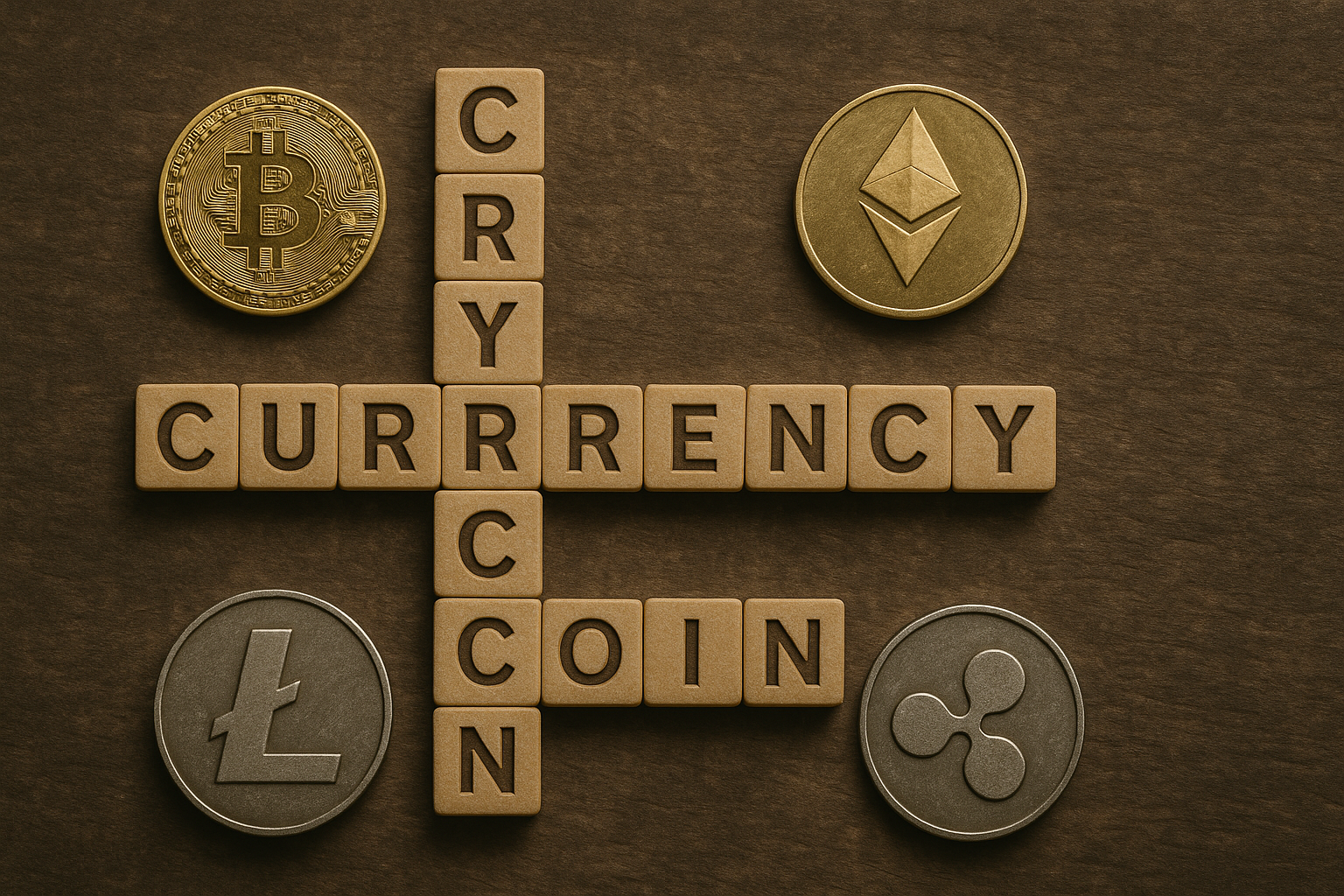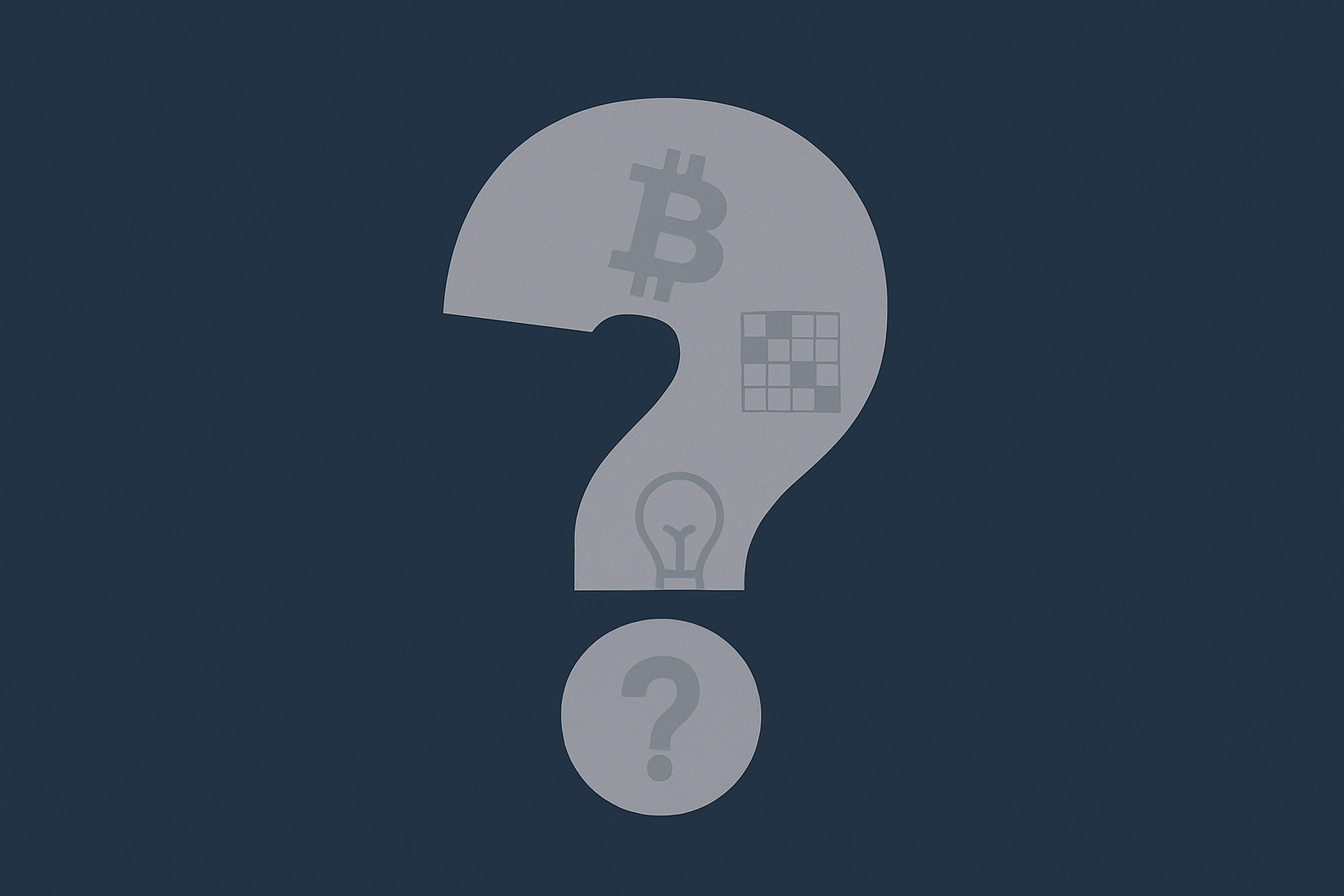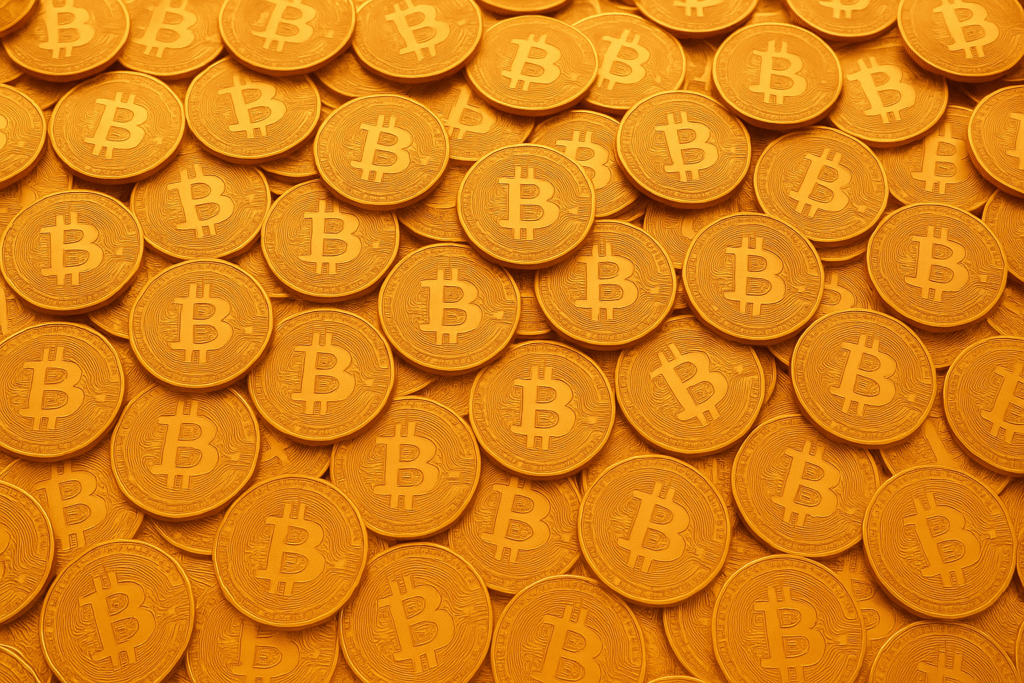30 Key Points (Bitcoin Alternative Familiarly Crossword: The Ultimate Clue Solver)
Solving the “Bitcoin Alternative, Familiarly” Crossword Clue
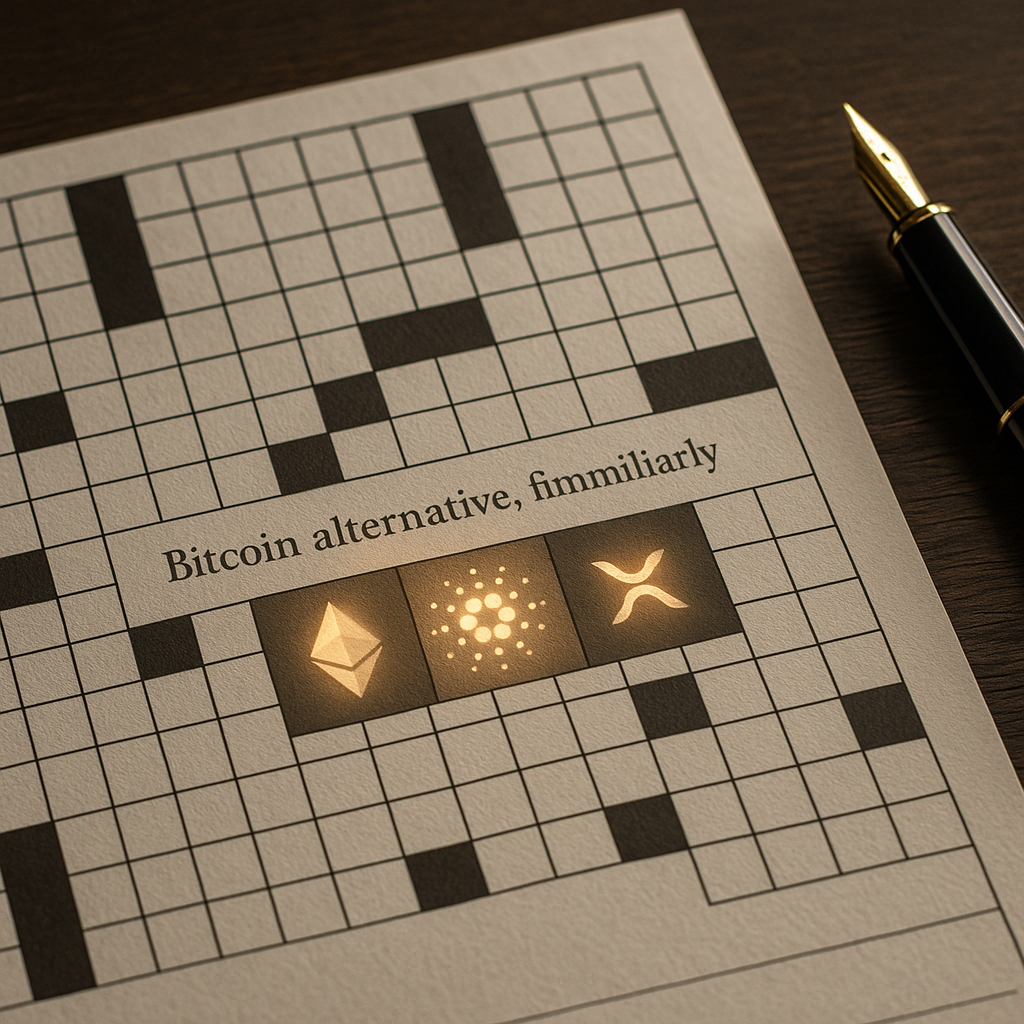
The Answer to “Bitcoin Alternative, Familiarly”
If you’re stuck trying to solve a crossword puzzle and stumbled upon the clue “Bitcoin alternative, familiarly,” you’re certainly not alone. As cryptocurrencies have grown increasingly popular, they’ve become a frequent subject in puzzles, crosswords, and trivia. While Bitcoin remains the most widely recognized cryptocurrency, there are many others, commonly known as “altcoins,” which serve as familiar alternatives.
Crossword puzzle constructors often use words that are both concise and recognizable. Here we break down the answers clearly, based on the most common letter counts you might encounter in your puzzle:
3-Letter Answers
ADA
ADA is the official ticker symbol for Cardano, a blockchain platform designed as a direct competitor and alternative to Bitcoin and Ethereum. Cardano has gained prominence for its energy-efficient proof-of-stake (PoS) algorithm, robust security, and advanced smart-contract capabilities 1. Puzzle creators frequently pick ADA for its brevity and widespread recognition within cryptocurrency circles. Its familiarity as a ticker symbol makes it an ideal fit for crossword enthusiasts needing short answers.
XRP
Another popular three-letter alternative is XRP, the digital asset associated with Ripple, a blockchain-based digital payment protocol designed primarily for banks and cross-border transactions. XRP differentiates itself significantly from Bitcoin through extremely fast settlement times, low transaction fees, and a very different consensus mechanism (RippleNet) 2. Its widespread adoption by financial institutions around the world, along with its catchy ticker symbol, makes XRP a common puzzle solution whenever “Bitcoin alternative” appears as a clue.
LTC
Litecoin (LTC) is one of the earliest and most widely recognized Bitcoin alternatives, often referred to as the “silver to Bitcoin’s gold.” Created by Charlie Lee, Litecoin offers faster transaction confirmation times, a different hashing algorithm (Scrypt), and cheaper transaction fees compared to Bitcoin 3. Its long-standing reputation and short, recognizable ticker symbol make LTC an excellent choice for crossword puzzle constructors.
4-Letter Answers
DOGE
DOGE, short for Dogecoin, started as a joke cryptocurrency in 2013 but quickly became a cultural phenomenon and one of the most well-known Bitcoin alternatives. Endorsed by celebrities like Elon Musk, Dogecoin gained mainstream recognition as a fun and casual crypto 4. The term “familiarly” fits DOGE perfectly because of its origin as a meme and its easy-going community identity.
NANO
NANO is another concise four-letter option commonly used in puzzles. NANO differentiates itself from Bitcoin by offering instant, fee-less transactions, using a unique consensus protocol known as Open Representative Voting (ORV). Its efficient design, eco-friendly approach, and user-friendly name contribute to its crossword puzzle popularity, particularly in tech-savvy or cryptocurrency-focused puzzles 5.
5-Letter Answer
ETHER
ETHER, the native cryptocurrency of the Ethereum blockchain, is one of the most common answers you’ll encounter for this crossword clue. Ethereum revolutionized blockchain technology by enabling smart contracts and decentralized applications (dApps) that Bitcoin couldn’t support in its original form. Its wide adoption and market dominance among Bitcoin alternatives ensure its recurring inclusion in puzzles 6. The clue’s mention of “familiarly” fits Ether perfectly because while Ethereum is the blockchain, “Ether” is the informal and familiar name for the currency used on that blockchain, widely known among crypto enthusiasts and beyond.
Why These Answers Are Common Crossword Choices
Crossword puzzles have limited space and require words to fit specific letter counts. Cryptocurrency ticker symbols and short, easily recognizable names like ADA, XRP, LTC, DOGE, NANO, and ETHER are ideal puzzle solutions due to their brevity and mainstream familiarity. Moreover, puzzle creators often choose crypto terms due to their relevance and increasing public awareness.
Additionally, crossword puzzles frequently adopt trending terms from popular culture, technology, and finance. With cryptocurrencies becoming mainstream topics discussed on news channels, podcasts, and social media, puzzle constructors leverage these recognizable terms to attract and engage modern audiences.
Finally, these particular cryptocurrencies represent different categories within the broader altcoin market—smart contract platforms (Ether, ADA), payments-focused currencies (XRP, LTC, NANO), and meme coins (DOGE)—making them representative choices to capture various aspects of the cryptocurrency landscape in crossword puzzles.
This quick, organized list provides the immediate solutions you need for your puzzle-solving endeavors. Now that you’ve found the answer to your crossword clue, you might be curious why puzzle creators specifically pick these cryptocurrencies as answers. Next, we’ll dive deeper to help you understand exactly why these crypto answers perfectly fit the clue “Bitcoin alternative, familiarly.”
Deconstructing the Clue: Why These Words Are the Answer
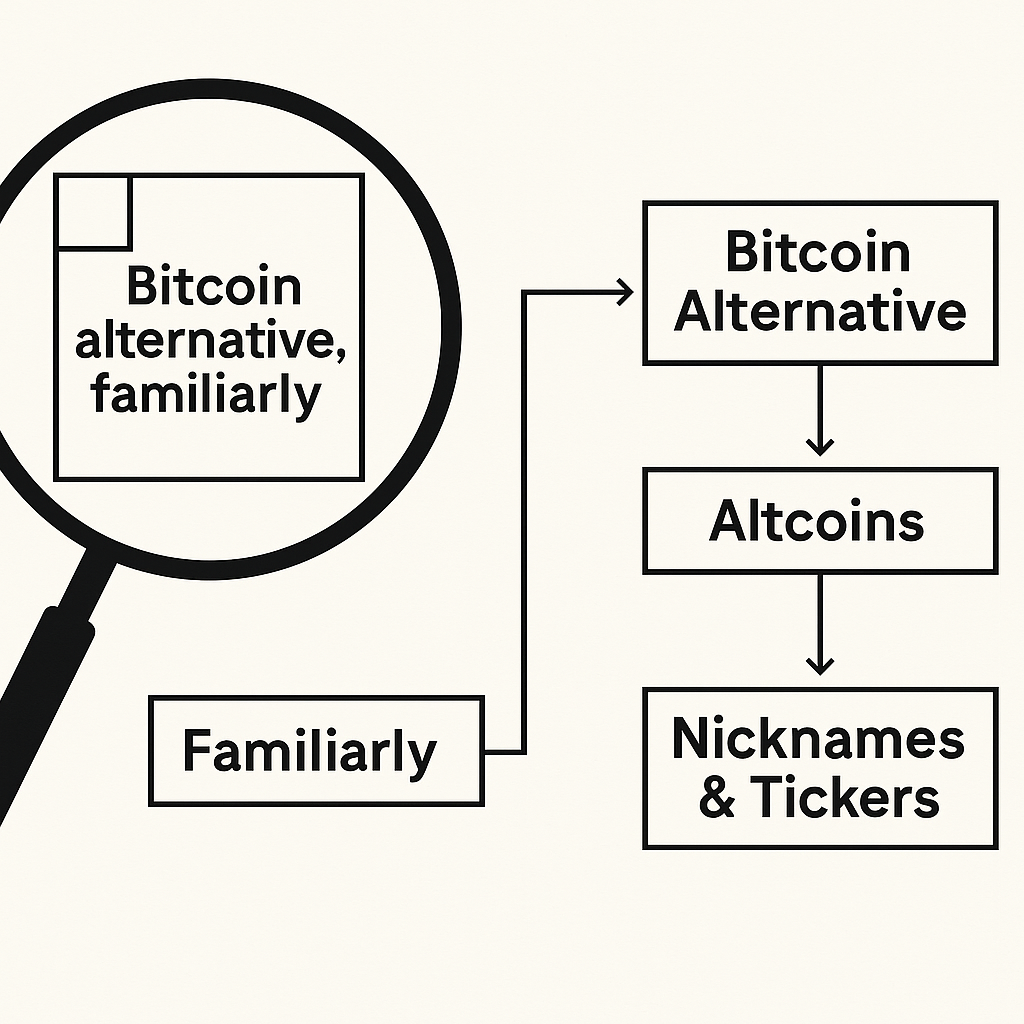
When solving crossword puzzles, especially cryptic or themed clues, it’s helpful to understand why specific answers are chosen. Puzzle constructors often select clues based on two main criteria: clarity and familiarity. The clue “Bitcoin alternative, familiarly” is deliberately worded to guide the solver toward cryptocurrency answers that not only represent Bitcoin alternatives but also have familiar abbreviations or informal names.
Why ETHER is a Common 5-Letter Answer
The “Bitcoin Alternative” Aspect
Ethereum, whose currency is called Ether, is often viewed as the most prominent Bitcoin alternative due to its substantial market capitalization and its revolutionary role in blockchain technology. Ethereum was the first platform to popularize smart contracts, which are automated contracts encoded into the blockchain. Unlike Bitcoin, which primarily functions as digital money, Ethereum expanded the blockchain’s use to decentralized applications (dApps), decentralized finance (DeFi), and Non-Fungible Tokens (NFTs). Ether is therefore a fitting choice for a “Bitcoin alternative” clue, as Ethereum fundamentally represents a blockchain technology evolution beyond Bitcoin’s original use-case as digital cash. In fact, Ether currently stands second only to Bitcoin in market dominance and has arguably more real-world applications in the decentralized world of blockchain-based services 7.
The “Familiarly” Aspect
While Ethereum is the name of the blockchain platform, Ether (ETH) is the informal and widely accepted name for its native cryptocurrency. Puzzle creators specifically use the word “familiarly” because the currency is commonly referred to by its informal name—”Ether”—by crypto enthusiasts, developers, and even mainstream media. Thus, “familiarly” hints that the clue’s answer should be the informal name rather than the full blockchain name, Ethereum, making Ether an ideal fit.
Why ADA is a Common 3-Letter Answer
The “Bitcoin Alternative” Aspect
ADA, the cryptocurrency of the Cardano blockchain, is frequently used as a Bitcoin alternative due to its advanced blockchain technology, scientific approach, and environmental sustainability. Unlike Bitcoin’s proof-of-work model, ADA runs on a highly efficient proof-of-stake consensus protocol called Ouroboros, reducing energy consumption and transaction fees significantly. Cardano’s development approach involves rigorous academic peer review, making ADA an innovative and credible Bitcoin alternative favored by tech enthusiasts and environmentally-conscious users. With its strong community and significant global adoption, ADA has become one of the major altcoins recognized worldwide 8.
The “Familiarly” Aspect
“ADA” is a concise and widely recognized ticker symbol for Cardano’s native cryptocurrency, named in honor of Ada Lovelace, the 19th-century mathematician often regarded as the first computer programmer. The familiar ticker name “ADA” is instantly recognizable within cryptocurrency circles, and puzzle creators leverage this short, simple, and memorable identifier to appeal to a broad audience.
Why XRP is a Common 3-Letter Answer
The “Bitcoin Alternative” Aspect
XRP, created by Ripple Labs, positions itself very differently than Bitcoin. While Bitcoin operates as decentralized digital cash, XRP focuses on streamlining cross-border financial transactions, notably among banks and financial institutions. Ripple’s XRP ledger can process transactions within seconds, dramatically faster than Bitcoin’s average 10-minute block confirmation time. This efficiency and its extensive adoption by financial institutions make XRP an attractive Bitcoin alternative, especially in corporate and banking sectors, where speed and reliability are paramount 9.
The “Familiarly” Aspect
XRP is known predominantly by its ticker symbol, as Ripple Labs initially branded its product as Ripple but quickly adopted XRP to differentiate the currency clearly from the parent company. “Familiarly” in this context refers to the widespread recognition of XRP as the informal, go-to shorthand for Ripple’s digital asset. This widespread recognition in the crypto and financial industries contributes significantly to XRP’s popularity as a puzzle answer.
Crossword Puzzle Logic: Short and Familiar
The logic behind crossword puzzle construction often involves selecting words that can fit easily into a grid and are recognizable to the puzzle solver. Cryptocurrencies naturally lend themselves to puzzles due to their concise ticker symbols (like ADA and XRP) and their informal, well-known nicknames (like Ether). Puzzle constructors intentionally choose answers with the dual purpose of being both short and immediately recognizable to maximize solver engagement and puzzle accessibility.
In summary, puzzle creators deliberately select the words ADA, XRP, and Ether because each not only meets the technical criteria of being Bitcoin alternatives but also embodies familiarity through ticker symbols or commonly used nicknames. Understanding this dual meaning behind the crossword clue can help puzzle solvers confidently select the correct cryptocurrency as their answer.
From Puzzles to Portfolio: A Beginner’s Guide to Altcoins
![]()
Crossword puzzles often serve as gateways into new worlds of knowledge. If you’ve found yourself intrigued by cryptocurrency after encountering terms like “Ether,” “ADA,” or “XRP” in puzzles, you’re not alone. Many crossword enthusiasts initially discover cryptocurrencies through puzzles, which prompts them to explore this rapidly expanding financial ecosystem more deeply. This section provides a straightforward beginner’s guide, explaining clearly what altcoins are, the major categories you should know, and important considerations before investing.
What Exactly is a “Bitcoin Alternative” or Altcoin?
An “altcoin” (short for “alternative coin”) is essentially any cryptocurrency other than Bitcoin. Bitcoin, created in 2009, was the original digital currency and remains the most prominent and valuable cryptocurrency. Over the past decade, however, thousands of alternative cryptocurrencies have emerged. These altcoins typically aim to improve upon Bitcoin’s original technology or address specific use-cases beyond digital cash.
The term “altcoin” broadly refers to a diverse range of cryptocurrencies with different objectives, technologies, and functionalities. From providing decentralized finance services to creating energy-efficient transaction methods, altcoins continuously innovate beyond Bitcoin’s core capabilities. As of 2025, altcoins account for approximately 50% of the total cryptocurrency market capitalization, signifying their significant presence and influence in the crypto ecosystem 18.
The Main Categories of Altcoins You Should Know
Smart Contract Platforms
Smart contract platforms enable the creation of self-executing contracts with terms directly written into code, stored and executed on a blockchain. Ethereum (Ether), Cardano (ADA), and Solana (SOL) are among the most well-known smart contract platforms. These blockchains power decentralized applications (dApps), decentralized finance (DeFi), and Non-Fungible Tokens (NFTs). Ethereum, for instance, is the largest and most widely adopted smart contract platform, hosting thousands of decentralized apps, from games and lending platforms to NFT marketplaces 19.
Stablecoins
Stablecoins are cryptocurrencies pegged to real-world assets like the U.S. dollar, gold, or other currencies. Tether (USDT), USD Coin (USDC), and Binance USD (BUSD) are popular stablecoins providing cryptocurrency users with stable, predictable value, reducing price volatility typically associated with Bitcoin and other cryptocurrencies. Stablecoins are widely used for trading, transferring funds across exchanges, and offering stability within volatile markets 20.
Meme Coins
Meme coins, such as Dogecoin (DOGE) and Shiba Inu (SHIB), originated as jokes or memes but quickly gained massive popularity due to community-driven hype, celebrity endorsements, and social media influence. Despite initially lacking serious technological advantages, meme coins have evolved, now even used in real-world transactions and donations, highlighting their surprising influence in popular culture and finance 21.
Is It a Good Idea to Invest in Crossword Puzzle Answers? A Word of Caution
Encountering cryptocurrency terms in crosswords might spark curiosity about investing in these digital assets. While learning about crypto through puzzles can be fun and engaging, investment decisions should always involve careful consideration.
Cryptocurrencies, including popular crossword answers like ADA, Ether, XRP, and DOGE, are notoriously volatile. While they offer potential for significant returns, investors also face substantial risks, including rapid price fluctuations, regulatory changes, and technological vulnerabilities. For instance, Dogecoin famously surged in price due to social media attention, only to experience equally dramatic declines shortly after. Such volatility demonstrates the high-risk nature of investing based purely on popularity or puzzle familiarity 22.
Therefore, before investing, individuals should conduct thorough research into any cryptocurrency, evaluate their personal risk tolerance, and ideally consult financial professionals. Puzzle familiarity should never substitute informed investment strategies or financial planning.
How Crossword Enthusiasm Can Lead to Smart Crypto Exploration
While crossword puzzle terms alone aren’t suitable investment strategies, they can serve as an entry point for exploring cryptocurrencies more thoughtfully. Learning crypto terminology through puzzles can motivate further research into blockchain technology, economic concepts like decentralization, and the broader implications of digital currencies.
Using puzzle curiosity as a stepping-stone to broader financial literacy and education can lead to informed decisions and safer engagement with cryptocurrencies. As awareness of altcoins grows through puzzles and popular culture, understanding these assets’ nuances and complexities becomes increasingly essential.
Safe Steps for Beginners Interested in Altcoins
If you decide to explore cryptocurrency investments, take these careful steps:
- Educate Yourself: Learn the basics about blockchain, decentralization, and crypto economics from trusted resources.
- Choose Reputable Platforms: Use established exchanges and wallets with proven security records, such as Coinbase, Kraken, Binance, or Ledger.
- Start Small: Invest only what you’re comfortable losing, especially at the beginning.
- Diversify Wisely: Consider spreading investments across various cryptocurrencies, minimizing exposure to single-asset volatility.
- Stay Updated: Cryptocurrency markets evolve rapidly. Regularly monitor news and developments to remain informed.
From Puzzle-Solver to Smart Investor
Crosswords are powerful educational tools that introduce terms from diverse fields, including cryptocurrencies. Embrace puzzle-solving as an enjoyable gateway to crypto curiosity, but always balance enthusiasm with careful research and responsible investment strategies. By transitioning from crossword-solving to informed crypto exploration, you can safely and confidently navigate this innovative financial landscape.
This comprehensive beginner’s guide bridges the gap from puzzles to crypto portfolios, empowering puzzle enthusiasts to understand Bitcoin alternatives clearly, invest responsibly, and enjoy the exciting world of cryptocurrencies beyond crossword grids.
Disclaimer
This article is provided for informational and educational purposes only and should not be considered financial, investment, or legal advice. Cryptocurrencies carry significant financial risks, including market volatility, regulatory changes, and potential loss of investment. Always conduct thorough research and consult with qualified financial advisors or professionals before making any investment decisions. The author and publisher are not responsible for any financial losses, decisions, or outcomes resulting from the use of this information.

